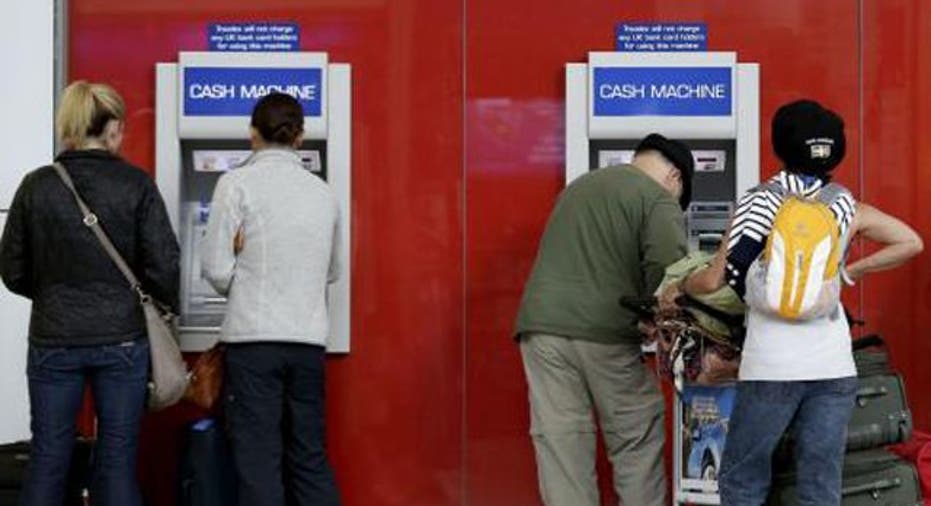4 Factors in Opening a Savings Account

Why you still need a savings account
According to a new study from the Consumer Federation of America, nearly half of all American families have a traditional savings account with a median balance of $2,400. A little more than one-third of families with low to moderate income have a savings account, with a median balance of $800.
"Much research has shown that families frequently are faced with unexpected expenses, ranging from a car repair to a medical bill to a traffic violation," says CFA Executive Director Stephen Brobeck. "Using a savings account is the easiest and least expensive way for many families, particularly those with few financial resources, to cover these expenses. Relying on a credit card, payday loan, or even friends or families are usually much less desirable options."
Here are four questions to ask before opening a savings account.
Do you have money for emergencies?
Regardless of a family's income, there is always the possibility that a wage earner could become ill, injured or unemployed. There is also a persistent possibility of an unexpected expense, such as vehicle or appliance repairs, dental work, or travel. While certificates of deposit, individual retirement accounts and other long-term savings vehicles are important tools for financial planning, a local savings account is readily available and liquid when you need it.
"There are no penalties for withdrawing your cash from a savings account as there are with an IRA, and there's no interest to pay as there would be if you used a credit card to get through an emergency," says Cristina Briboneria, vice president of oXYGen Financial Inc. in Alpharetta, Ga.
"Having money in reserve is important for every family and every individual," says Kevin Gallegos, vice president of Phoenix operations for Freedom Financial Network. An emergency savings account makes it possible to pay in cash for expenses that "otherwise would cause the person to rush to a credit card," he adds.
How much do you need to save?
If a savings account is set aside for the unexpected, how do you determine how much to save?
"The larger the account, the more financially secure the family (is), though our research shows that even as little as $500 can make a big difference," Brobeck says. "One survey revealed that low-income families think they need $1,500, while moderate-income families think they need $3,000. Of course, it's desirable to save far more to help protect one in the event of (a) job loss or huge, unexpected expense."
Most financial planners recommend saving three to nine months' worth of expenses, depending on the family dynamics. For instance, if only one adult in the household is working, the family's emergency fund should hold enough to cover at least six months' of expenses, "Because if there's a job loss, there's nothing else to fall back on," says Bob Gavlak, wealth adviser with Strategic Wealth Partners in Seven Hills, Ohio. For two-income households, Gavlak recommends saving a minimum of three months' in expenses.
"It really just depends on your personal comfort level," Briboneria says. "Some people like to have up to 12 months' of expenses saved."
What about interest rates?
Interest rates remain historically low, but that shouldn't deter families from beefing up their savings accounts. "The last thing you want to worry about in your emergency fund is building interest," Gavlak says. "An emergency fund is purely for emergencies."
Still, Briboneria says if you want to find the best interest rate possible, shop around at credit unions and online banks. "Typically, credit unions have higher rates than brand-name banks because credit unions support their members rather than shareholders," she says.
Additionally, online banks such as Ally, ING and Orange often offer higher interest rates than commercial banks, though the Federal Reserve has kept interest rates low to boost the economy.
Money market accounts, money market mutual funds, savings bonds and CDs will provide better interest rates. "They also will provide you with less flexibility, so you need to plan properly when funds will be needed," says Cary Siegel, author of "Why Didn't They Teach Me This in School? 99 Personal Money Management Principles to Live By."
However, don't get hung up on looking for a more lucrative interest rate. Far more important than earning a specific rate of interest is simply having that extra cash available, Brobeck says.
How do you start to build savings?
If you're not in the habit of saving, start small and make it a habit. Then, increase the amount you're saving incrementally, experts say. Briboneria tells her clients to "pull off the Band-Aid and start somewhere." First, set a goal for how much you want to accumulate. Then, set a time frame for when you want it completed.
"The easiest way for families with tight budgets to save is to ask their bank or credit union to transfer a fixed amount every month or pay period to a savings account," Brobeck says. "Almost all will do so, but you should also request that as long as the deposits are made regularly, any monthly fees are waived. Some banks and credit unions advertise the fact that if automatic deposits of as little as $25 are made monthly, fees will be waived even if minimum balance requirements are not being met."
After a few months of saving, gradually increase that amount until you're saving about 10% of your income. And make sure those savings are in a dedicated account. "Don't just keep savings in your spending account with a mental note that they're 'saved,'" says Gallegos.
To help you keep your savings in the savings account, open that account at an institution other than the one you normally use. "Keep it out of sight and out of mind," Gavlak says.



















